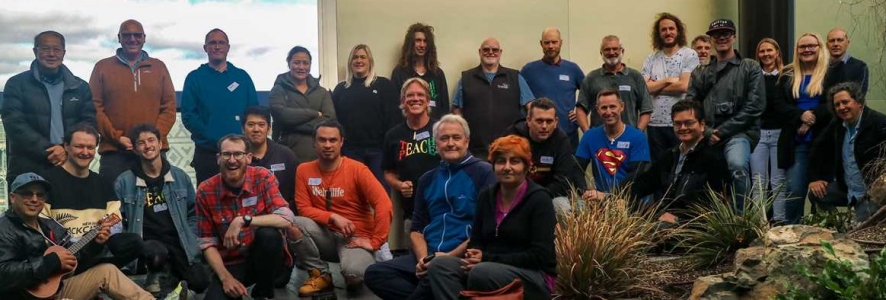A long-serving early childhood teacher helps coordinate the men’s network
NZ Education Gazette nov. 2007
David Baxendell is full of enthusiasm for the early childhood men’s network, though he laughs as he recalls how a series of emails saw him shanghai’d into running the EC-MENZ website.
To be fair on his fellows, he previously produced a website for the Canterbury/Westland group, forerunner to the national network.
The website has gained a new lease on life and is now an online hub for the men’s groups around the country. It is just one sign of renewed momentum in the support groups following this year’s men in early childhood care and teaching summit in Christchurch.
David reckons on five years more before he retires from early childhood teaching, and in the meantime he is keen to see more men follow his career footsteps.
By getting male teachers talking to each other, to students and to those who are curious, the national network may help spread the word about teaching as a career.
David says most men who enter early childhood teaching do so after meeting or hearing from someone who is already a teacher.
He says they also tend to have done other jobs and are less likely to be school leavers. They often have their own children and have enjoyed fatherhood.
He works at Kidsfirst Kindergartens, Edmonds Smith St, in Christchurch and was one of the first men in New Zealand to train in early childhood education. He began teaching in 1982.
For David, the attractions of the job are clear.
“It is just such a fantastic job. I love working with children of that age, where they are at the wide-eyed, bright-eyed stage where learning is still fun. They just love to learn and the more I give them the more they soak up.”
The Canterbury/Westland group meets four to five times a year and also has longer weekend get-togethers, he says.
“We’ve been going away for a weekend retreat once or twice a year where we all go out to somewhere in the countryside, doing some walking and some talking and enjoying some male company as much as anything.”
The group of seven or eight regulars now finds more people come to meetings, including students.
Some perceptions may need to change to get even more along. David says men may have fears about what peers would think of such a career or about entering a profession dominated by women, and these fears could act as barriers.
However, he feels the main barrier for men has simply been their lack of awareness that it is a valid option for them, and he hopes to get more men to “dip their toes in the water” and try it out.


